What is Product Management?
Hey I’m Ant and welcome to my newsletter where you will find practical lessons on building Products, Businesses and being a better Leader
You might have missed these recent posts:
- Driver + Navigator
- Great Product Managers Go Deeper
- Product Strategy Should Be Messy
p.s. If you’re looking to grow your impact and accelerate your career, check out the Product Mentorship!
If you missed last week’s webinar with Product Ops legend, Antonia Landi, don’t worry the recording is up on YouTube here.
We covered a lot of ground, but one thing I didn’t expect was to go all meta and discuss “what is product management?”
As Antonia said in the webinar, a danger with Product Ops (and now with AI) is the temptation to outsource key aspects of product management.
Of course, there are some things you can - and should outsource - but the danger is outsourcing core activities that to the untrained eye may seem like admin but are really much deeper.
Take user interviews, for example.
Christoph Steinlehner did an excellent job on LinkedIn the other day explaining why this is a bad idea (the second catalyst for this post):
The most valuable part of customer interviews isn't the information you collect—it's how your brain changes while conducting them.
Last week, during a discussion about AI-powered customer research, I realized something.
When product teams outsource their customer interviews—whether to AI, agencies, or even dedicated researchers—they lose at least half the value.
Here's what happens in real-time interviews that reports and recordings can't capture:
When a customer says something unexpected, my brain immediately starts connecting the dots. My brain alerts "Why?" while simultaneously forming new mental models. These neural connections happen differently when I'm actively engaged versus passively consuming information.
Even as a notetaker in someone else's interview, I find myself automatically sorting and processing what I hear in ways that don't happen when reviewing recordings later.
It's even worse when only consuming distilled and interpreted reports. My brain doesn't get in the same exploration mode.
I think that's why I see teams that delegate all their customer conversations struggle to innovate despite having "all the data."
By over-indexing on the information-gathering aspect of interviews, we lose the actual target to discover real opportunities and get our brains into the needed exploration mode, that leads to innovative ideas.
To me, this is product sense.
And the "brain changes" and automatic synthesis that Christoph is referring to are key to building it.
It's the empathy you build with your users, the knowledge and understanding that enable you to connect the dots over time.
This is textbook lateral thinking and how innovation occurs.
Lateral Thinking: “The solving of problems by an indirect and creative approach, typically through viewing the problem in a new and unusual light.”
One of my favourite examples of this is Nintendo.
Gunpei Yokoi, the mastermind behind many of Nintendo's famous inventions, had a saying: “lateral thinking with withered technology”.
After observing bored businessmen on the Shinkansen home playing with their calculators, Yokoi came up with the idea of developing a similar device (LCD screen with buttons) for gaming. This was the genesis of the Game & Watch and handheld gaming devices in general.
By this point, LCD screens were 'old tech' and had been used in calculators for years. However, a handheld gaming device was new, innovative and completely changed the world of gaming.
Credit: Wikipedia. Ball, Nintendo's first Game & Watch
So, while it may be tempting to offload some of your tasks to data teams, research teams, AI, and even other team members in your product team (e.g., getting the designers to do research), you need to be careful about what you outsource.
I see this happen with large organisations that outsource their research and discovery.
And it somewhat makes sense at first as they don't have the skills in-house and want to do a good job but without a plan on how to bring those skills - and more importantly knowledge - in-house they become reliant on these agencies.
Before you know it, the company cannot make any big decisions, set a strategy, or build a new experience without getting agencies involved.
They have Agency X doing a strategy for them, whilst Agency Y is helping with discovery for this new product idea (which came from said strategy)
It's a ridiculous position to be in!
And let's be honest, who do you think would produce a better strategy and products? The company that has been doing this themselves and built up years of knowledge and understanding, or the agency charging a few million bucks for a strategy slide deck?
The same goes for you and your product team.
What NOT to Outsource
Ok, let's get actionable!
Before I give you a list as a guide, I want to start with principles.
As a rule of thumb, you don't want to outsource anything that is core to your product or anything that will deepen your product sense/understanding.
For example:
A data team is great for helping you think about what data you might want to track, to coach you, to help pull specific data for you. But you should still go through that data and develop your own understanding and insights.
Research teams are great for helping with longer and more statistically significant studies, but not to do all your research for you.
And AI is great for helping you build drafts and be a co-pilot, but it shouldn't be in the driver's seat.
Asking AI to synthesise for you to come up with interview scripts, assumptions, etc, is valuable if you're also doing the synthesis to cross-check or ask it what assumptions you're missing - not to come up with them and blindly follow what it spat out.
As a guide, here are some things I'd be second-guessing before outsourcing:
Research
User Interviews
Concept testing
Sythesis
Generating insights
Data analysis
Product Strategy
Prioritization
Generating assumptions
And to contrast, here are some things that I've outsourced in the past (including starting to leverage AI to assist)
Data gathering
Documentation
Creating drafts
Review and suggest missing assumptions, requirements, interview scripts, etc.
Of course, this is still contextual because time is limited, and there will be moments when you need to make tradeoffs. Just do them consciously.
What is product management?
This gets us to the question: What is product management?
And I think this is where some commonly held perceptions differ.
There's a camp that views product management as largely a facilitation role (and that's not to say facilitating isn't part of the role, it is, but it's not everything).
Then there's another camp that views the role as a craft. A contributor and key person who shapes the product.
I've floated between these camps to be honest over the years.
I've thought about empowered teams of brilliant people where, yes you could have a product manager that is purely an enabler to the team - a facilitator.
And there are places, like Basecamp, that don't have product managers because they have a system for achieving this facilitation and enablement. Which suggests this is true and can work (although you could argue they still have product leadership through the leaders placing bets each cycle).
But I now firmly sit in that latter camp.
Product Management is NOT being a messenger.
It's not about turning what some research team produces into a spec and then handing that off to engineers to build.
Nor is it about going around and compiling what stakeholders and users want.
Product management is a craft.
It's contributing to and shaping the product.
A product manager shapes the product just as much as a designer and engineers do.
And I'm not saying that facilitation, gathering input from stakeholders, and creating specs aren't part of the role—they are. But they're not the whole role.
Let me give a real recent example to illustrate the difference:
Product Manager A organises a workshop with stakeholders to define a new feature. It's the first step he takes. He doesn't have any input or prep. His goal is to run a workshop to get the stakeholders to define what the feature should be. At the end of the workshop, Product Manager A documents the outputs from the workshop and that’s what the team builds
Product Manager B starts by speaking to the stakeholders one-on-one and conducts initial interviews with users. She also asks the data team for any existing data they might have on the problem space. Taking all these inputs Product Manager B starts to shape what she thinks the feature should look like. Working collaboratively with her peers (the product trio), they synthesize and craft a first draft of options for how the feature could look. She then organises a walkthrough with her stakeholders to discuss their proposal and thinking for feedback.
It's nuanced because in both scenarios, they ran workshops with stakeholders for input.
They both facilitated.
They both produce a spec of what the feature should be.
But for Product Manager A, they were purely a facilitator.
Product Manager B, however, shaped the product.
Product Manager B is how I view product management - it's a craft.
This is why there's so much overlap with entrepreneurship and founders.
This is exactly what founders are doing (I know because I coach them too!)
So, although you're not an expert in engineering or from a UI/UX perspective, you still have so much value to bring in terms of strategy, direction, and what's valuable/viable.
It's also okay to have opinions and contribute to those spaces. I have a lot of thoughts on UI/UX, and I've had those discussions with my design counterparts. There's mutual respect there.
Of course, if you're not doing that and you're close to Product Manager A, then yes, that role can be outsourced to AI or something else.
I’d love to hear your thoughts on this!
Sorry for the more philosophical post, but this has been both a coaching topic with one of my clients, plus it came up in the webinar with Antonia, and Christoph’s post — so it’s clearly the universe talking to me!
I hope the post was helpful nonetheless.
If you know someone who should read this, give it a share. Most of my subscribers come from referrals like these.






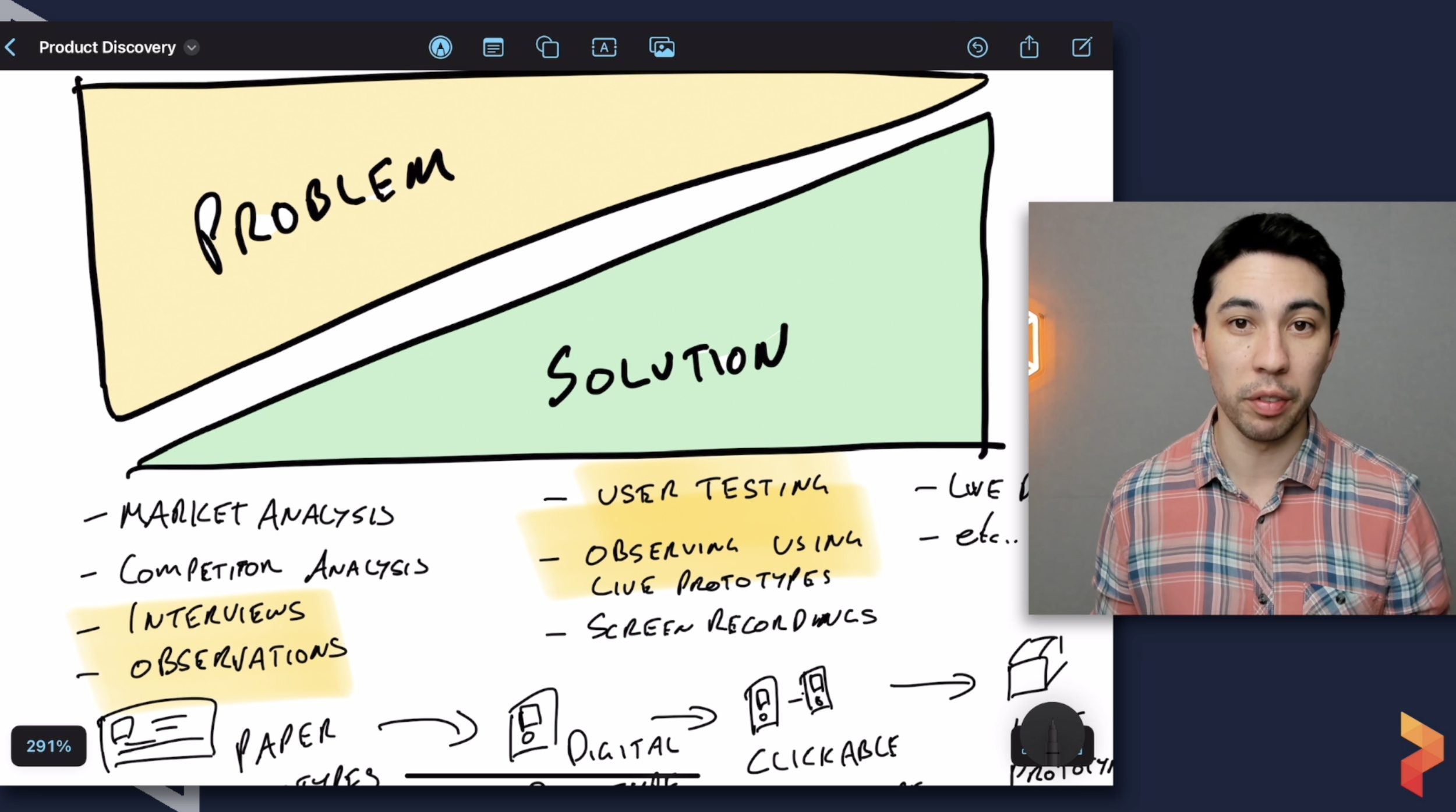
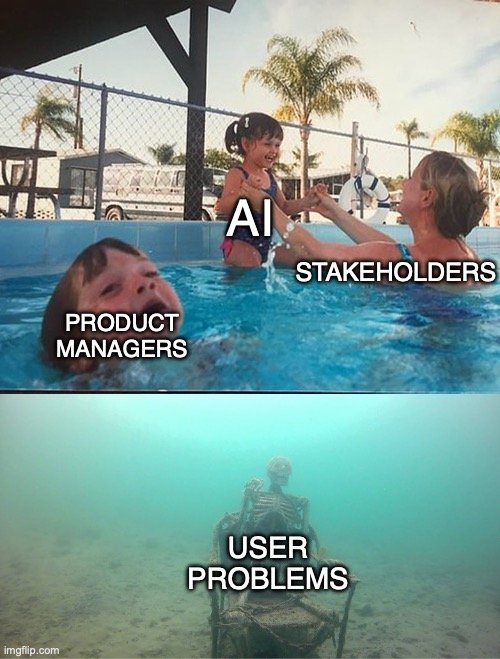




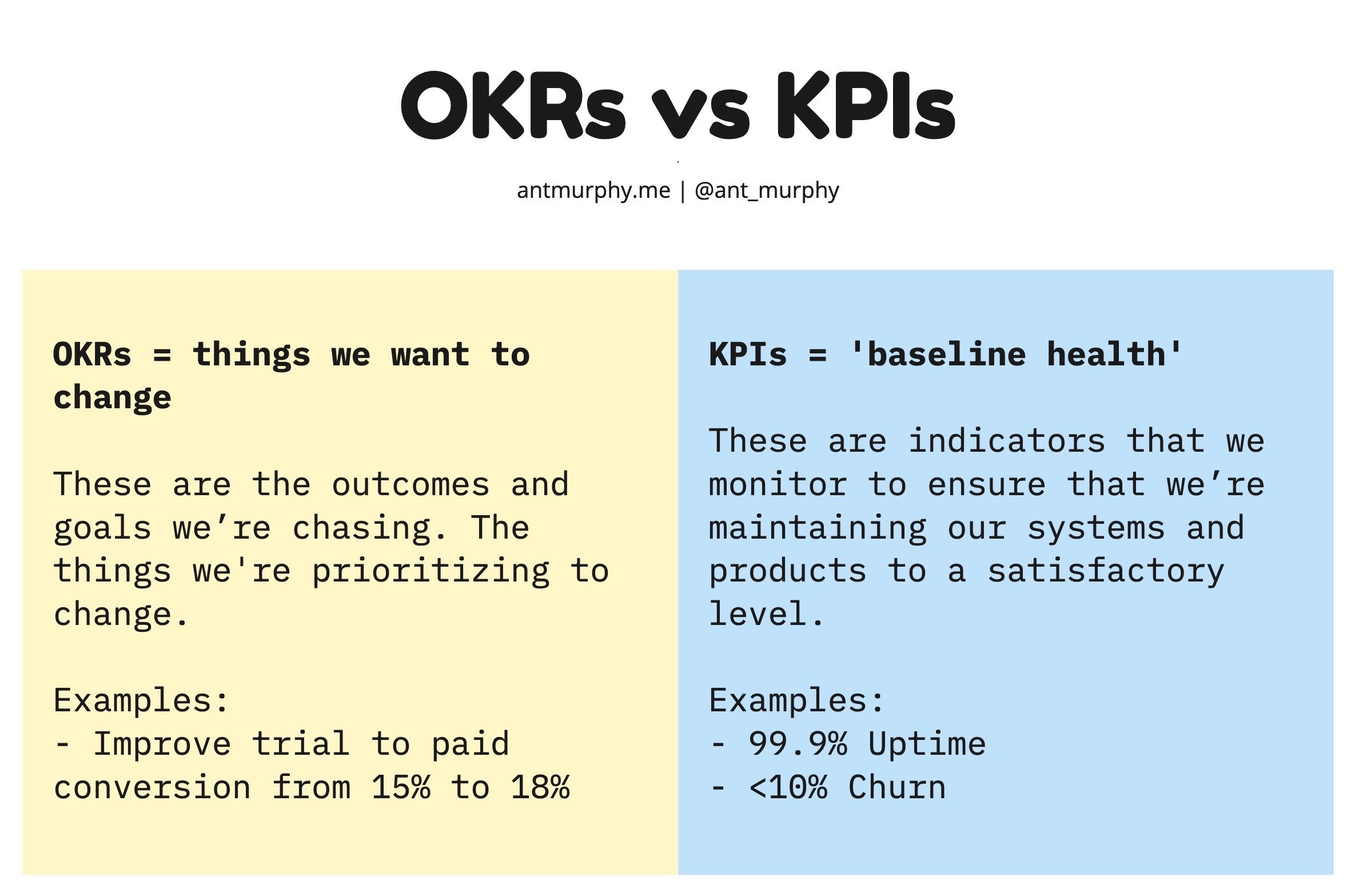
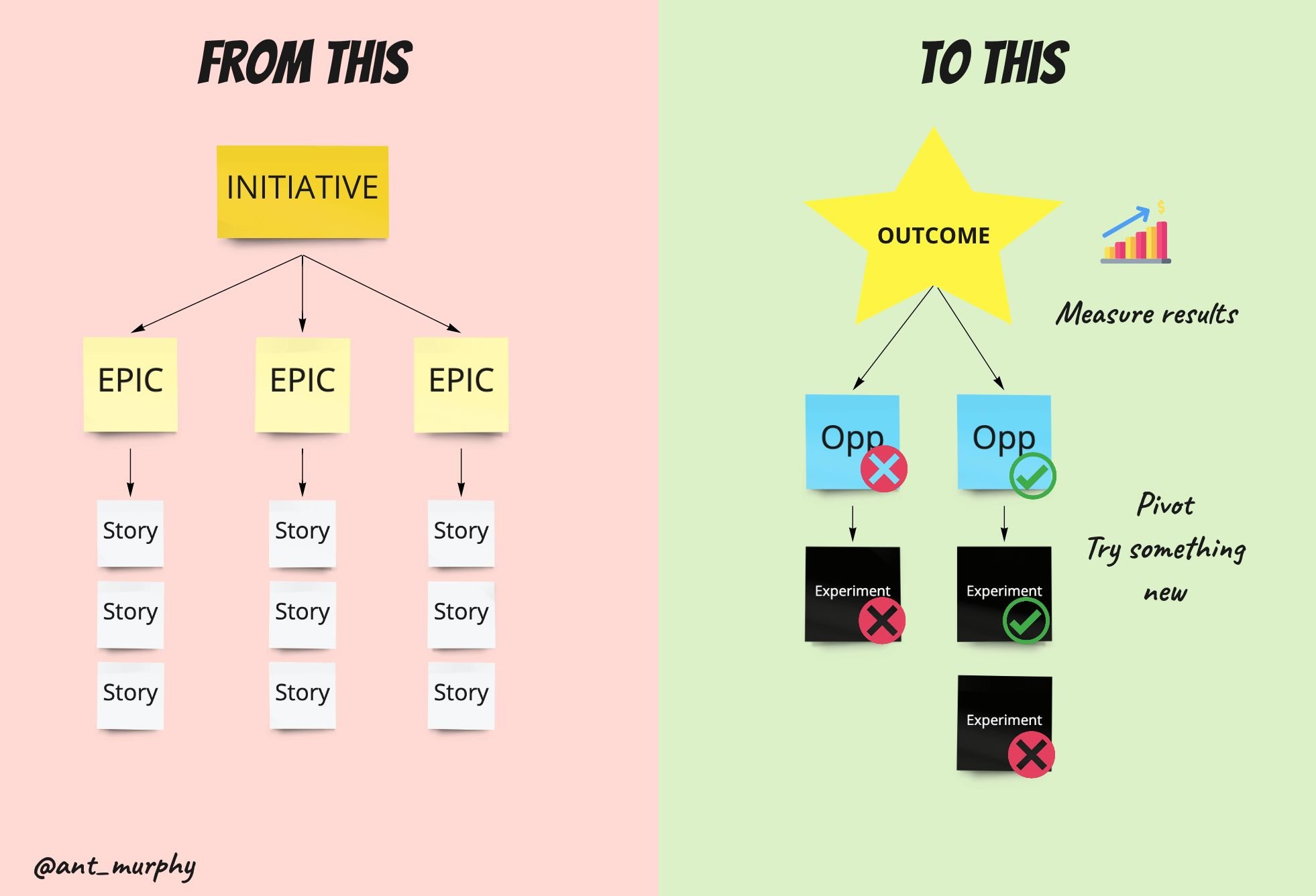
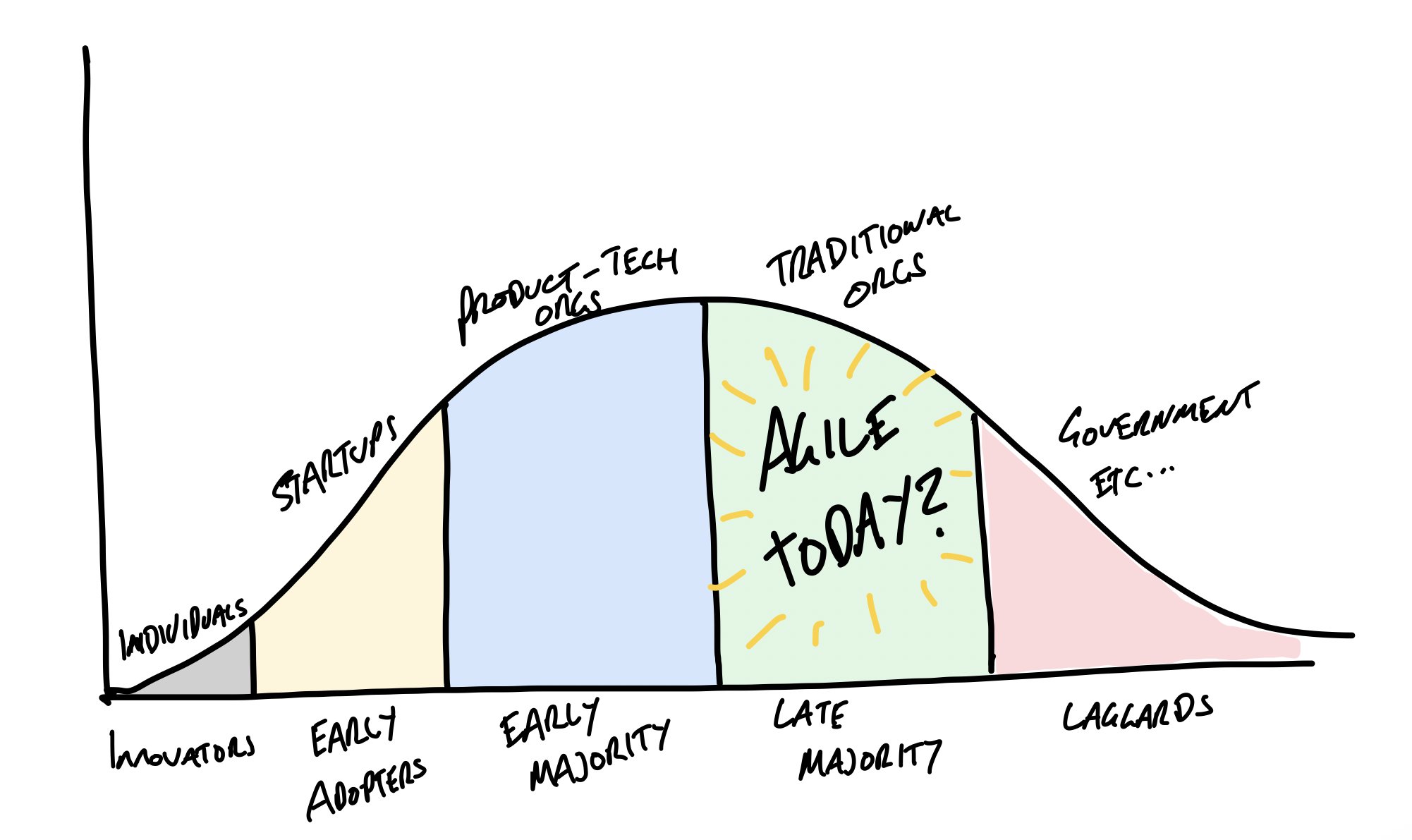

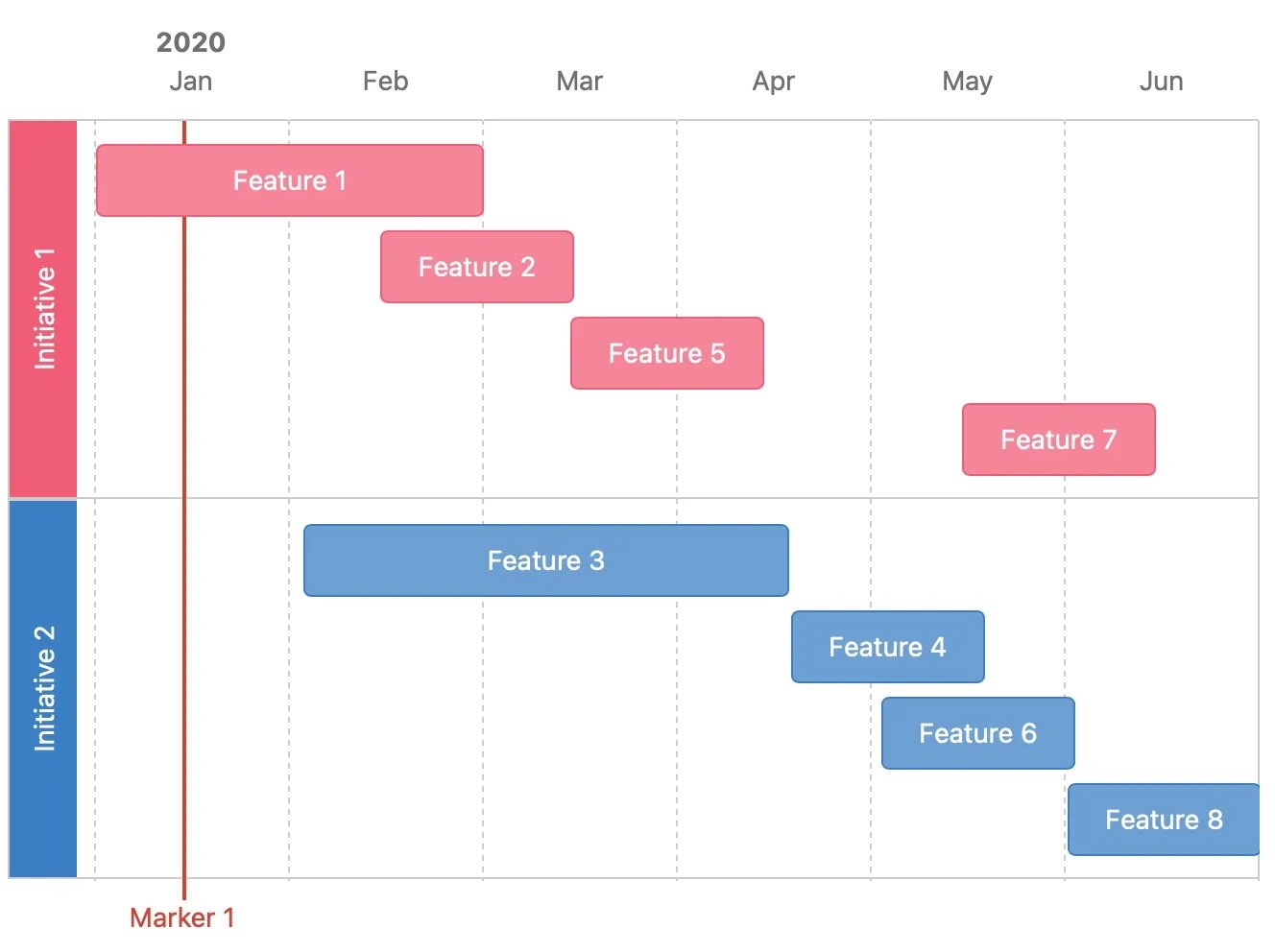
Your OKRs don’t live in a vacuum.
Yet this is exactly how I see many organizations treat their OKRs.
They jump on the bandwagon and create OKRs void of any context.
Here’s what I see all the time…